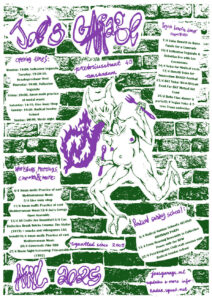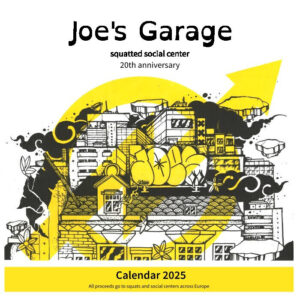Enkonduko al la Lingvo, Historio kaj Komunumo de Esperanto
Merkredo 10 novembro 2021, 19:00
Esperanto estis inventita en 1887 de pola okulkuracisto nomita L.L. Zamenhof, kiu esperis ke lia kreaĵo helpos transponti diferencojn kiuj devenas de lingvaj baroj. Zamenhof vidis turbulan mondon dividitan per lingvo, kaj li kredis, ke la lingvoj, kiujn homoj jam parolis, estas trosaturitaj de historio, politiko kaj potenco, kio malebligas klare komuniki. Esperanto estis nova komenco, teknologio kiu permesus al siaj parolantoj tute flanki la malfacilaĵojn de naturaj lingvoj.
Li ebligis ĝin kiel eble plej facile lernebla, sen neregulaj verboj, vortprovizo adaptita el latinlingvaj radikoj, kaj simpla, sengenra, preskaŭ senkasta gramatiko.
Venu por aŭdi kaj pri la historio de la lingvo, iom lernu, kio faciligas ĝin esti rapide lernenla, kaj malkovru kiel ĝi povus esti uzata por travojaĝi la mondon pere de la tutmonda Esperanto-komunumo (Esperantujo), kaj ankaŭ kiel vi povas partopreni en la movado (eĉ se vi ankoraŭ ne parolas esperanton).
Ĉeestos ankaŭ kelkaj lertaj esperantistoj ĉe la evento, do vi havos ŝancon aŭdi kiel fakte sonas Esperanta konversacio!
Ho, kaj ankaŭ estos iom da manĝaĵo
An Introduction to the Esperanto Language, History and Community
Wednesday 10 november 2021, 19:00
Esperanto was invented in 1887 by a Polish ophthalmologist named L.L. Zamenhof, who hoped his creation would help to bridge differences which stem from language barriers. Zamenhof saw a turbulent world divided by language, and he believed that the languages people already spoke were over saturated with history, politics, and power, making it impossible to communicate clearly. Esperanto was a fresh start, a technology that would allow its speakers to sidestep the difficulties of natural languages altogether.
He made it as easy to learn as possible, with no irregular verbs, a vocabulary adapted from Romance language roots, and a simple, genderless, almost caseless grammar.
Come to hear and about the history of the language, learn a bit what makes it so easy to learn, and discover how it could be used for traveling around the world through the worldwide Esperanto community (Esperantujo), as well as how you can get involved in the movement (even if you still don´t speak it just yet).
There´ll also be some proficient Esperanto speakers (esperantistoj) present at the event so you´ll have a chance to hear what a conversation in Esperanto actually sounds like!
Oh, and there´ll be some food too





